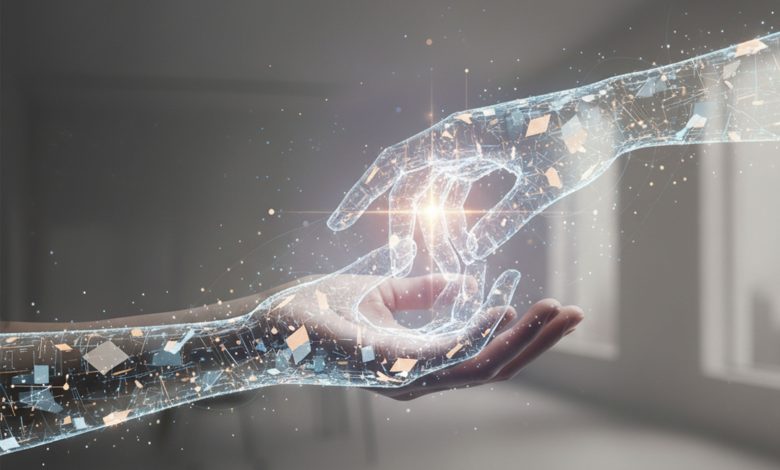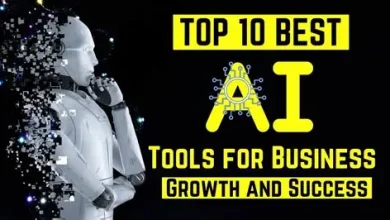
I opened my email mid-morning, and there it was. “Hi [First Name],” the email began, “I noticed you recently engaged with content about marketing automation.” The formula was textbook perfect. The timing was optimal. The offer was relevant. But here’s the thing: it felt hollow. Like nobody had actually sat down and written it. I knew right away it was AI, and honestly? I almost deleted it on the spot.
That moment says everything about where marketing has gone wrong. We’ve gotten so focused on optimization that we’ve forgotten what people actually care about: genuine human connection.
The Efficiency Trap
In a few short years, AI has turned marketing upside down. It can recognize audience patterns, predict behavior, and produce content faster than ever before. The promise seemed simple: more reach, higher engagement, less work.
But all that speed means nothing if it kills the connection. As brands rush to automate their customer interactions, a troubling pattern has emerged. Consumers have developed what researchers call “AI detection fatigue,” an almost instinctive ability to spot AI-generated content. More importantly, they’ve started to distrust it.
A 2024 study by Bynder, found that when posts sound AI-written, 25% of people think the brand feels impersonal, and others flat-out call it lazy. Here’s the twist: the smarter AI gets, the more people crave something human again.
When ‘Personal’ Feels Like Stalking
You see the authenticity paradox play out most in personalization. AI can track every click, every scroll, and keyword, then hit you with content so targeted it feels like it’s reading your mind. This should feel like great service. Instead of feeling personal, it feels like you’re being watched.
You mention your friend got engaged, and your phone instantly decides it’s your turn. Engagement ring ads everywhere. Impressive? Sure. Creepy? Also, yes. The emotional response? Uncomfortable at best, violated at worst.
AI isn’t the villain here. We are. Just because the tech can do something, doesn’t make it the right move. Those decisions still need human intuition, the kind that algorithms don’t have.
The Myth of Infinite Scale
Marketing leaders face immense pressure to do more with less. AI promises infinite scale, the ability to have personalized conversations with millions of customers simultaneously. Here’s the problem: you can’t mass-produce a real connection. The moment you try to scale it, it stops feeling real.
When customers reach out with real issues, information isn’t enough. They need to feel understood. Sure, AI can answer questions quickly. But reading subtext? Adapting on the fly? That’s still human territory.
The brands that actually win in the AI era won’t be the ones automating everything. They’ll be the ones who strategically choose what to automate and what to preserve as sacred human territory. Customer complaints? Human. Complex negotiations? Human. Routine FAQs? Perhaps AI, but with a clear path to human escalation.
The Voice Crisis
One of the most visible symptoms of marketing’s authenticity problem is what I call the voice crisis. Scroll through your feed, and it’s everywhere. Brands, influencers, and even small businesses are all starting to sound the same. What used to be a mix of distinct voices has flattened into AI-generated sameness. Perfect grammar, zero emotion.
AI isn’t the problem; lazy use of it is. Too many marketers hit copy and paste without asking the only question that matters: Does this sound like me? Or more importantly, does this sound like us? The result is a sea of interchangeable posts filled with polite buzzwords, stripped of the quirks, slang, or rhythm that make real human voices magnetic. Even punctuation has become a telltale sign — the em dash, once a stylistic choice, now signals an AI-generated sentence.
At Candidly Social I’ve spent years running social media for music icons, established businesses, and entrepreneurs, helping them show up online with authenticity. Through projects like AMP and Soundcheck, we’ve proven that AI doesn’t have to replace creativity, it can amplify it. Both tools analyze a user’s tone, cadence, and goals then turn that into evolving strategies covering everything from content and asset planning to engagement tactics, all designed to sound unmistakably human.
AI isn’t stealing our voices. We’re just forgetting to use them. The brands that thrive in the next decade will treat AI as a microphone, not a mask, something that amplifies what’s real instead of replacing it.
Where Automation Meets Authenticity
The future of marketing isn’t about choosing between automation and humanity. It’s about learning how to use both wisely. AI should push your creativity further, not flatten it. Let it build the framework, but the feeling, intuition, and voice still must come from you.
Transparency isn’t optional. People don’t care that you use AI, they care when you hide it. The brands that thrive long-term will be honest about how they use automation while keeping a real human touch in every interaction.
The real opportunity isn’t to sound like an algorithm but to use algorithms to sound more like yourself. When AI handles the mechanics, marketers get back what actually drives connection: empathy, creativity, and meaning.
The Path Forward
The authenticity paradox resolves when we stop treating AI as a shortcut and start treating it as a collaborator. The breakthrough isn’t in choosing between human and machine, it’s in understanding that AI amplifies whatever intentions we bring to it. Deploy it carelessly, and you’ll create efficient but soulless marketing. Deploy it thoughtfully, and you create something more powerful: technology that makes room for humanity, not less.
The question isn’t whether to use AI in marketing, it’s whether we’ll use it wisely enough to preserve what makes marketing matter in the first place. After all, people don’t buy from algorithms. They buy from people, or at least from the values and humanity those people represent. No amount of optimization can change that fundamental truth.


